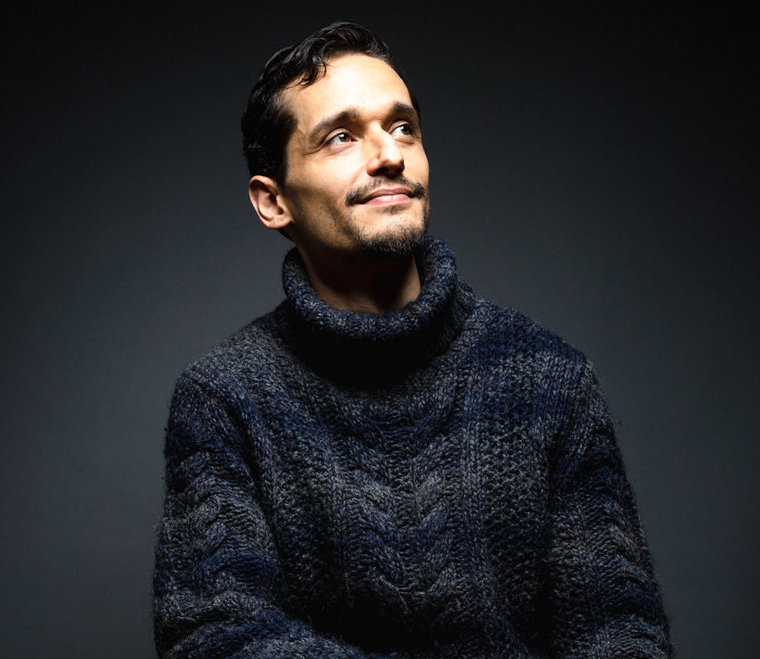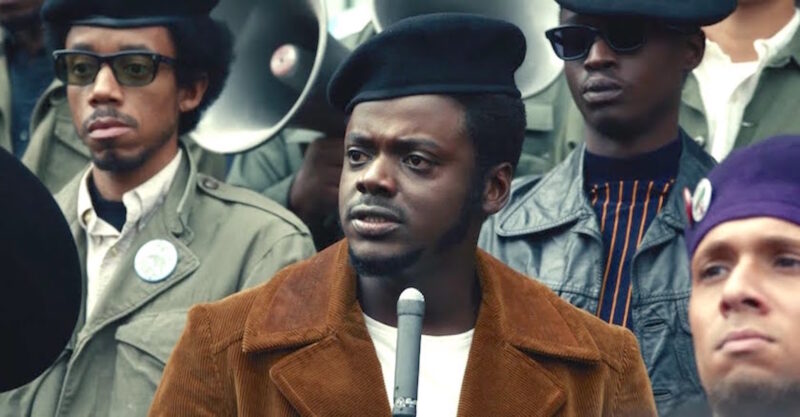By Patrick Z. McGavin
“I am one of those people who always points out things that could be better,” says Kristan Sprague.
The New York-based picture editor’s newest project, Shaka King’s “Judas and the Black Messiah,” is the fact-based story about relationship between Fred Hampton (Daniel Kaluuya), the charismatic leader of the Illinois chapter of the Black Panthers, and Bill O’Neal (LaKeith Stanfield), an FBI informant who infiltrated his group in 1969.
The Warner Bros. release marks the editor’s latest collaboration with King. Sprague also edited King’s feature debut, “Newlyweeds” (2013). The film has already won widespread acclaim and has a score of 96% on Rotten Tomatoes and 86% on Metacritic, the review aggregation websites.
The new movie premiered at the Sundance Film festival and is playing in select theaters and streaming at HBO Max.
CineMontage: How did you meet Shaka King?
Kristan Sprague: We are both from New York. He’s from Brooklyn and I’m from the Lower East Side. A good friend of mine left my high school and went to his school.
We heard of each other. We met, the first time, on a college recruiting trip. We ended up going to Vassar together. The way Vassar worked, the first couple of years was theory, and by your junior year you could finally start to make films.
The first thing we worked on together was our thesis project, a documentary about the global effect of capitalism on hip hop and music culture. He was the director and I was the editor. We worked well together. He went to NYU, and we started doing short films together. “Newlyweeds” was his thesis film at NYU.
What’s the working dynamic like between you?
On this film we were in different locations. I was in New York, and they were shooting in Cleveland. I cut an assembly while they were shooting. It was really long. It was not very good. I didn’t have the chance to ask questions.
We watched my assembly, and we also watched the footage shot for each scene and just talked through it. I really like doing that with any director. You are technically not getting anything done because you are just sitting and watching. The process is really important because you can talk about things, like “What were they trying to do?”
Shaka likes to be in the room, especially at the beginning when we are choosing takes.
The title sequence is very impressive with the striking archival material. What was the genesis of that?
The introduction wasn’t scripted. Originally it was going to be one archival clip and then the scene where J. Edgar Hoover (Martin Sheen) explains who the Black Panthers are. We realized we didn’t really want our movie to start that way.

Kristan Sprague, picture editor. PHOTO: Courtesy Sundance Film Festival.
We started with this documentary idea. We gathered a bunch of footage, watched the footage and selected the material together. I would take a pass at that, show it to Shaka and then we’d talk through it and adjust. The process changed radically over the course of the movie.
It started off like a stylized newsreel, and we wanted it to feel like that, except with the music and audio, things you wouldn’t normally do with a newsreel. Everybody is bringing different levels of awareness to the film. Some people know all about the Panthers and Fred Hampton. Other people didn’t really know anything at all.
The Democratic National Convention riots [in August 1968] had just happened. With the introduction, we asked, “What do we need to help people understand why our characters are acting like this.”
How much of the editing is meant to play off this idea of performative art, of people trapped by history?
We definitely talked about that with the O’Neal character. In the beginning he is pretending to be a federal agent. When he comes to the Panthers, he is pretending to be a Panther.
O’Neal is really the one who is acting. A lot of what we worked on was just contrasting the Fred and O’Neal characters, two men in the same situation, having two different reactions. Fred is very principled, who is understanding things, who has a plan, a code, things he believes in that he organizes his life around. O’Neal doesn’t really have any politics. All he cares about is himself and what he can acquire, like the car. Having that car was very important because it’s what allowed him to get close to Fred.
We talked about O’Neal character performing. Some of that is informed by an interview (from the documentary, “Eyes on the Prize II” [1990]) that we end the film on. If you watch that whole interview, you don’t know what side he is on. His answers are so nebulous. He talks about “we,” and you don’t know if he means the Panthers or the FBI. He is always going back and forth between the two. We tried to get that performance within the performance.
Did the movie flow in a certain rhythm or style to reflect the times?
Shaka has been working on this film since 2016. He’s been telling me about it ever since then. I’ve been watching it grow and grow. Shaka knows a lot about music. He already had a playlist about music when he gave pitches. Some of that got into the movie, that horn riff that starts with O’Neal. He gave me music to get into that frame of mind.
In terms of the structuring and pacing, we wanted it to feel like a ‘70s crime movie, “Dog Day Afternoon” (1975) and other Sidney Lumet movies. The film starts to get into a rhythm of its own. From watching it and getting notes from people, you start to figure out where it’s working and where it’s not, the parts where it’s too slow or too long. We were definitely conscious of that. We wanted it be move. It’s over two hours long, and we didn’t want it to feel like a slow movie.
We have two movies competing with each other: we have this undercover noir about a guy infiltrating some people and being conflicted about it, and we have this biographical portrait of Fred Hampton. We were balancing which scene needed to move faster and which scene did we need to slow down.
The scenes between O’Neal and the Mitchell character (the FBI handler played by Jesse Plemons), there is the critical moment where he has O’Neal draw up the floor plan of the house where they lived. We tried a faster version of that scene, and it just didn’t work. It needed the time. People hear pacing, and they think that is just speeding things up. There are other points where you need to slow down.
The centerpiece of the movie are these two great actors, Daniel Kaluuya and LaKeith Stanfield, circling each other. What was it like to shape those performances?
It was interesting working with LaKeith’s performance. Normally what you are doing is you are looking for the honest moments. “That feels real,” or “I believe that.” You believe the character, you believe the actor.
What’s interesting with the O’Neal character is that he was lying. It was interesting shaping his performance because we wanted to show that he was lying, except not so much that it was obvious. The interrogation scene in the car was a lot of fun to play with, finding the right balance where he’s lying and the audience knows that.
It was definitely a balance to find the right tone, scene to scene. Daniel was so amazing. You’re watching the dailies, and you just forget you are watching him. You just assume he is Fred. A lot of what you’re doing as an editor is that you’re judging things.
That’s mostly what I am doing. I’m judging a performance, the lighting, which is the best looking shot, which is the best performance, the most honest performance, all of those things.
What compelled you towards becoming an editor?
It fits my personality, and I was lucky because I found it early. I knew early I wanted to be in movies, but I wasn’t sure how. Editing made sense. It always felt right. It’s a very tedious process. There’s no way around it, and some people just can’t handle that. I found I could get lost in that in a good way.
I liked it. I didn’t mind that. I enjoyed poring through footage and trying things a million different ways and working on something until we could get it right. It takes patience that some people don’t have.
I’m also very critical, especially of things I do. Nothing else matters except what is on screen. This is difficult for some directors, but sometimes what you intended is not what came through. I’ve always been very good at saying, “This is not what that is saying. If you want to say this, great. If you don’t want to say this, then we have to change it.”
What do you think the personal ramifications of this movie are?
I’m worried I am not going to be able to find another project like this. It’s really been a culmination of nearly 20 years of making films with Shaka. We have both, together and separately, been building our careers so we have been able to do this. Once we had the chance, we could take advantage of it.
It was one of those things that just came together. I think anytime you have a really good movie, you can try your best, but you need some things to fall in place. Everything seemed to be falling in place with this film.
We tried to give an honest account of what happened, to try and correct the story. It has been corrected for some people. It hasn’t been corrected in the popular mind. This film from all sides has been a wonderful experience. It seems to be doing well.
I also got into the union because of this film, which is something that I think Fred would appreciate. I’ve been working for almost 20 years, but mostly on low-budget, independent stuff that weren’t union films. Working on a union film was great, knowing I have support if I need it. I’m hoping I can get more films like this.
Patrick Z. McGavin is a Chicago cultural journalist.


